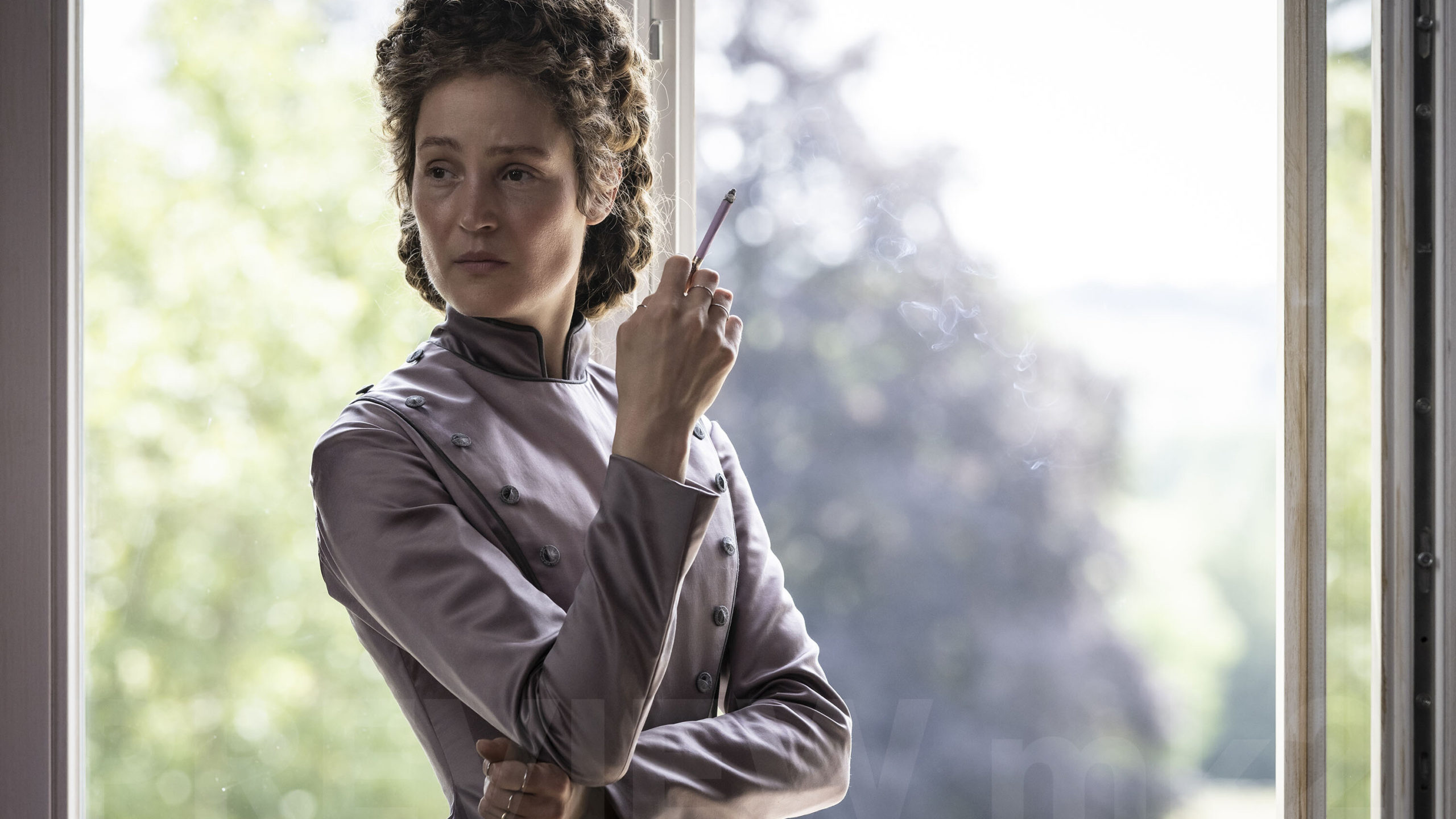The notion of women punching their way through the predetermined confines of male orders and role restrictions has never, at any point in time, not seemed of its current moment. It’s also an urgent theme in many a novel or film as women challenge stifling eras, traditions, religions and pressures rooted in both society and gender, from iconic forerunner Marie Antoinette to Jane Austen’s progressive Elizabeth Bennet to the Mennonite women of this year’s patriarchal denunciation Women Talking.
In the delicately titled Corsage, a pointedly clever amalgam of history and imagination that might erroneously sound like a light, drawing room comedy of good manners, star Vicky Krieps is terrific as Empress Elisabeth of Austria (and Queen of Hungary), a prototypical woman out of time, and one tightly corseted—literally and figuratively—by her preordained aristocratic role.
Written and directed by Austrian filmmaker Marie Kreutzer, Corsage blends fact and fiction to depict Empress Elisabeth as a freethinking independent who was nicknamed “Sissi,” constructing a “what if?” extrapolation of the discontented royal, a legend embellished here with fanciful (fan) fiction. Perhaps recent movie corollaries might be Spencer, featuring Kristen Stewart as a put-upon Princess Diana and this year’s polarizing Marilyn Monroe exposé Blonde, both of which trade on truth and imagination to essay restrictive societal constructs and their personal spoils.
Picture opens in 1877 as Sissi is on the verge of celebrating a milestone 40th birthday at a time when her social capital was still burning brightly–think of her as sort of cultural touchpoint, icon or influencer of her time, a reality star writ large yet without true influence. A product of her period, one in which women were required to be in a state of physical restriction (“corsage” means corset in French), Sissi had no voice in matters of state, essentially relegated to a glamorous figurehead, required to keep her visage perfect for the masses.
Such pressures combined with Sissi’s abject boredom led, the film suggests, to an eating disorder and a casual heroin habit. While such afflictions–bulimia and drug addiction–may have been self-destructive for Princess Diana and Marilyn, this fictional version of Elizabeth, granted greater agency over her destiny, has other intentions.
Aging Sissi has grown weary of the shackles of royalty and the shallowness of image upkeep, and while the outside world speculates endlessly on her every move, inside she wages a growing rebellion, creating friction with Emperor Franz Joseph I (Florian Techtmeister). She eventually swamps palatial malaise for solo European travels and the film takes a huge factual liberty with her final days. In a striking, self-possessed performance, the eminently watchable Krieps smokes incessantly, is abruptly caustic, uses contemporary expletives and cackles to convey the absurdity of her gilded cage, clearly having a good time as a character mostly not having one.
Stylistically, Corsage is not slavish to period authenticity and like Sofia Coppola’s Marie Antoinette is peppered with anachronistic touches, including unique musical arrangements of Kris Kristofferson’s Help Me Make it Through the Night (ukulele) and Marianne Faithful’s As Tears go By (on a harp, no less). Kreutzer has mounted a polished film with impeccable art direction, costuming and cinematography, and something to say about Sissi’s gradual coming into her own state of mind. This freedom culminates in a revisionist conclusion (in real life she was assassinated) and final questionable note of unshackling intended, it seems, as liberation. While Kreutzer sidesteps biopic tropes in favor of her constructed feminist parable, her episodically free-flowing picture is not fully satisfying as drama. There’s an arid and often leisurely paced quality about Corsage that can sometimes feel plodding.
A century and a half post Sissi we are still very much in a discussion about women shattering impediments designed by men, from pay equity to career advancement or facing Supreme Court determinations on their freedoms. Even in the film industry, when a pair of female directors win back-to-back Oscars their achievements are regarded as “progress,” arguably more symbolic than artistic. In Corsage, Krieps gives inner fire to the independent Sissi, fiercely determined to reclaim her personal power and agency right to her decisive end.
3 stars



